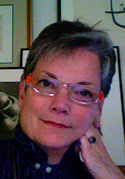 |
→ July 2007 Contents → Dispatches
|
|
|
|
EDITOR'S NOTE: 
In July Dispatches presents two different views of Northern Ireland by Leif Skoogfors and Michael Kienitz. Klavs Bo Christensen travels to Damascus, Syria, to see and hear appalling accounts of Iraqi terror from its refugees.
The N. Ireland dispatches were prompted by the recent historic power-sharing accord reached on March 26, 2007 between longtime adversaries Ian Paisley, the Protestant leader, and Gerry Adams of Sinn Fein, the political arm of the Irish Republican Army. Considered a major breakthrough in the tortured history of Northern Ireland, the pact finalized peace efforts begun nearly a decade earlier with the Good Friday Agreement. Reached in Belfast on Friday, April 10, 1998, this agreement set out a plan for devolved government in Northern Ireland on a stable and inclusive basis. It also created commissions for Human Rights and Equality, the early release of terrorist prisoners, the decommissioning of paramilitary weapons and far-reaching reforms of criminal justice and policing.
Leif Skoogfors writes of his personal journey during "The Troubles" of the 1970s. One result of his dedicated coverage was a late onset of PTSD [Post-Traumatic Stress Disorder, from MedicineNet: Post-traumatic stress disorder, a psychiatric condition, can develop after any catastrophic life event. Symptoms include nightmares, flashbacks, sweating, rapid heart rate, detachment, amnesia, sleep problems, irritability and exaggerated startle response. Treatment may involve psychotherapy, group support and medication.] The disorder is often associated with soldiers after combat but Skoogfors rightly says that the photographers are also often in the middle of hot events, armed only with a camera.
In his dispatch, Michael Kienitz returns to Belfast to find the now grown-up children he photographed years ago. Kienitz is a videographer-photographer and he has applied these considerable talents to an ongoing project, "Small Arms: Children of Conflict." As he writes, "Children of Conflict" follows children in eight countries over time.
We learn in Leif Skoogfors' piece that Northern Ireland was a bloody and brutal place. This is driven home by the children's stories Michael Kienitz tells.
Klavs Bo Christensen spends time with the Iraqi refugee community in Syria. The Sayeda Zainab quarter of Damascus in which they live is named for Zainab, who was the sister of the Shiite martyr Hussein and protector of his son Ali. She is buried in the mosque of Sayeda Zainab (Lady Zainab).
The people he meets are caught in an unchanging situation—they can't go back nor can they go forward to America or Europe unless they are given asylum. Even though some of these men had risked their lives as interpreters for the Multinational Forces and were promised sanctuary, they were not approved for any when their lives were threatened. Christensen also tells the horrific story of Ibrahim, who was terribly tortured with fire and drills.
We learn, if we hadn't been paying attention, that Iraq is an equal-opportunity hell-on-earth for both the Shiites and the Sunnis. Marianne Fulton |
|
Go to the Dispatches archiveBack to the Contents Page |
|


